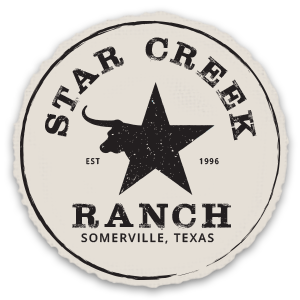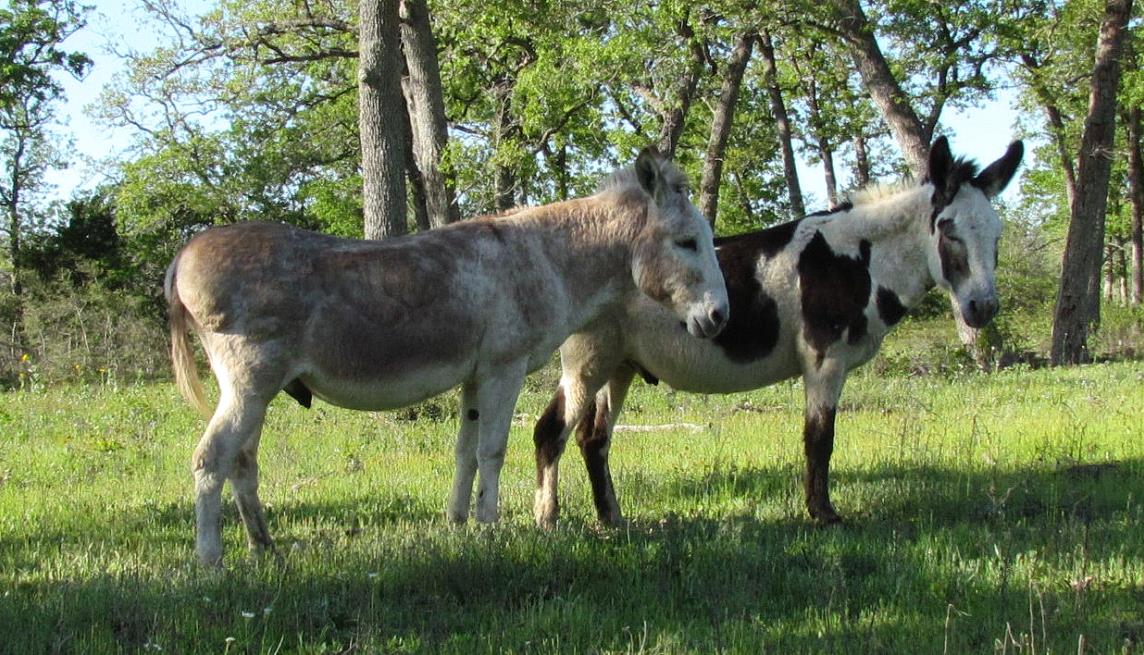
Have you ever seen coyotes or, worse, stray dogs wandering through your pastures? Both coyotes and stray dogs can present dangers to calves, heifers and small steers. In my experience, packs of dogs roaming about present more of a threat to small calves and weanlings than coyotes. This is because if one dog starts chasing after calves, the other dogs will commonly join in, and they will develop a “pack” mentality. I think coyotes would prefer to go after smaller prey such as rabbit, gophers and field mice.
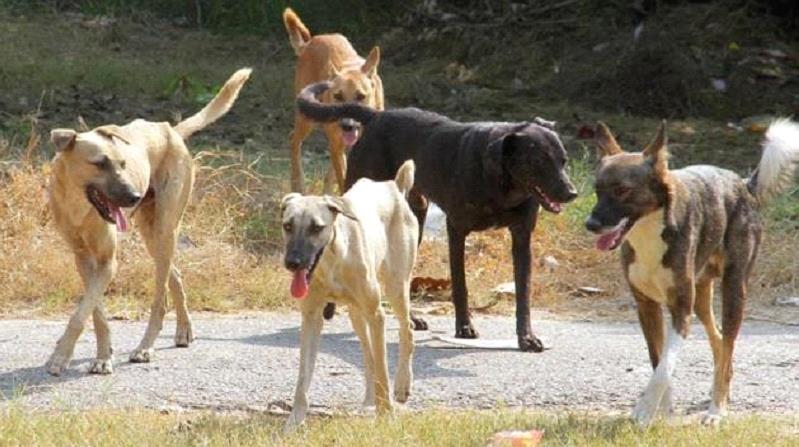
A Pack of Stray Dogs Can be Deadly to Calves
Guard donkeys can be a good protection against predators. Donkeys are more acceptable to the general public than poisons and traps. They can provide round the clock protection for the herd. Generally, guard donkeys are less expensive than other guard animals. Also, they eat the same as cattle, hay and grass, and do not require special feed.
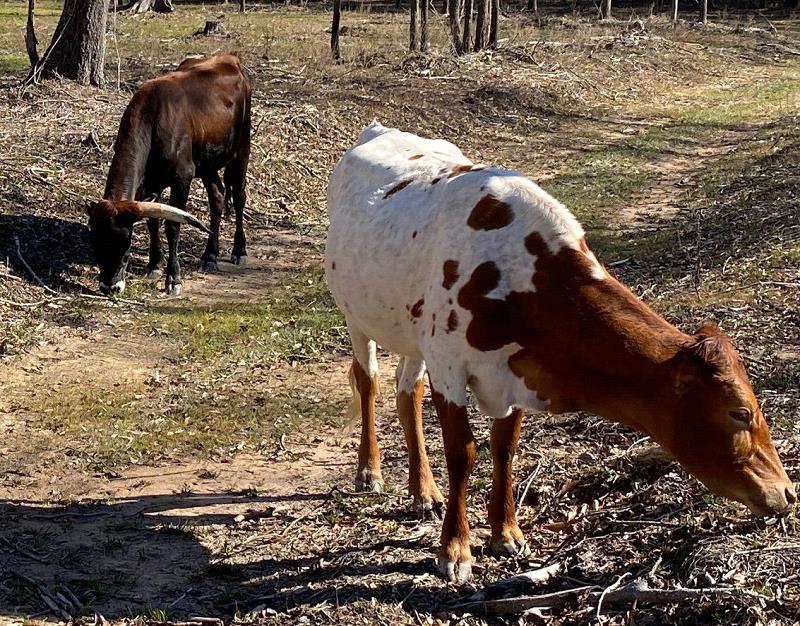
Heifers previously attacked by stray dogs; one missing a horn and ear and the other missing both ears and horns.
Using Guard Donkeys
Donkeys are generally aggressive toward unfamiliar dogs and coyotes. They will bray, bare their teeth, attempt to kick and bite dogs and coyotes. They may also be aggressive toward strange livestock and people they do not know and behave in a similar fashion.
While they don’t necessarily “patrol” the pasture looking for predators, they would be attracted to any disturbance within the herd and pursue any predators. They generally get along well with cattle and are also accepted by the cattle. The exception to this would be an intact male (jack or stallion) which may be aggressive and attack calves. Be very careful about letting a jack run with a herd with small animals or pregnant cows. Jennies (females) are much better to use as guard animals. Geldings can be used if they have been raised with the cattle since an early age.
Also, standard size donkeys work where miniature or small donkeys would not be suitable. The donkey should be in good health and have proper foot care, vaccinations and worming just as any horse would require.
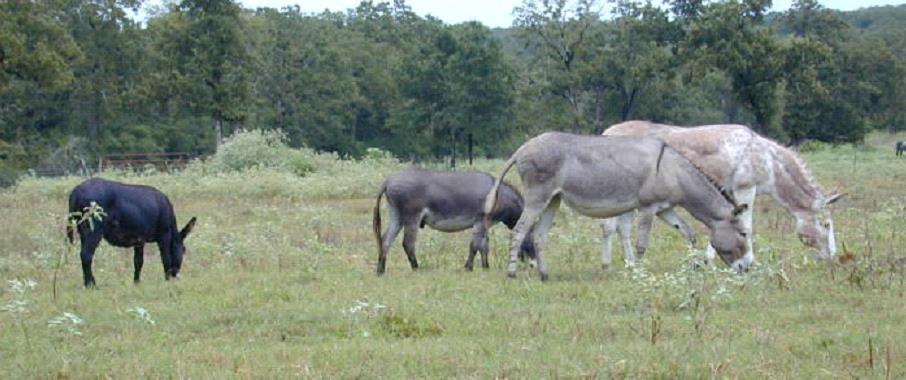
Large Donkeys work better than Miniature Donkeys
Selecting a Guard Donkey
You may be able to find someone that raises donkeys specifically for use as guard animals. These donkeys may have been raised with sheep or cattle and be acclimated to running with livestock. They might be suitable to introduce to your cattle with a brief time of running across a common fence from your herd. You will want to keep a close eye on the animals to see how they react to each other in the beginning. It might be good to make the introduction in a pen so that you can intervein in case something doesn’t go just right in the beginning.
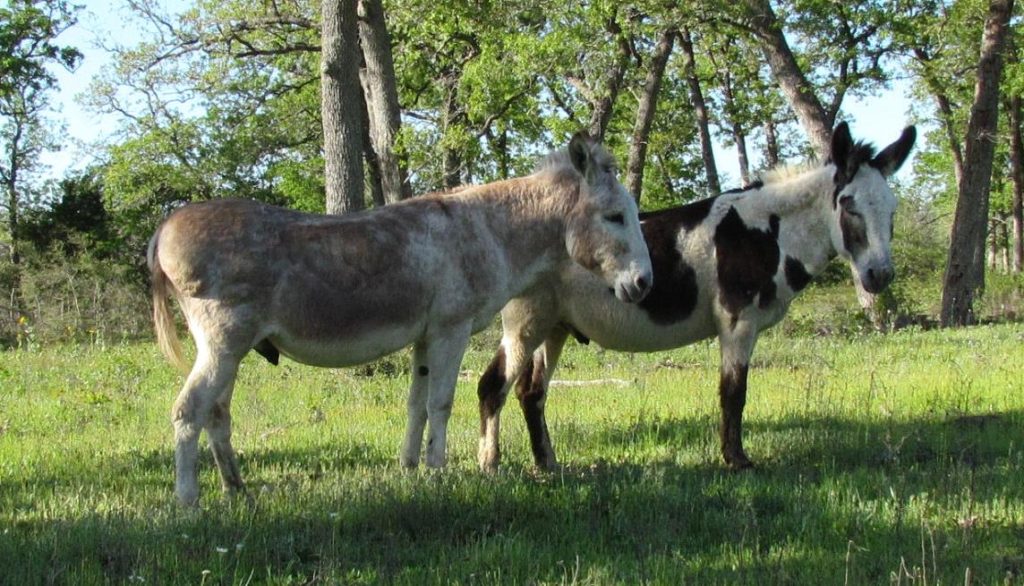
Gelding Donkeys can make good Guard Donkeys
Sometimes donkeys are hard to locate. The Bureau of Land Management has a Wild Horse and Burro Program in which burros held on public lands are frequently auctioned off or offered for adoption. These auctions are held at various locations and times around the United States. You can find more information about this program at https://www.blm.gov/whb.
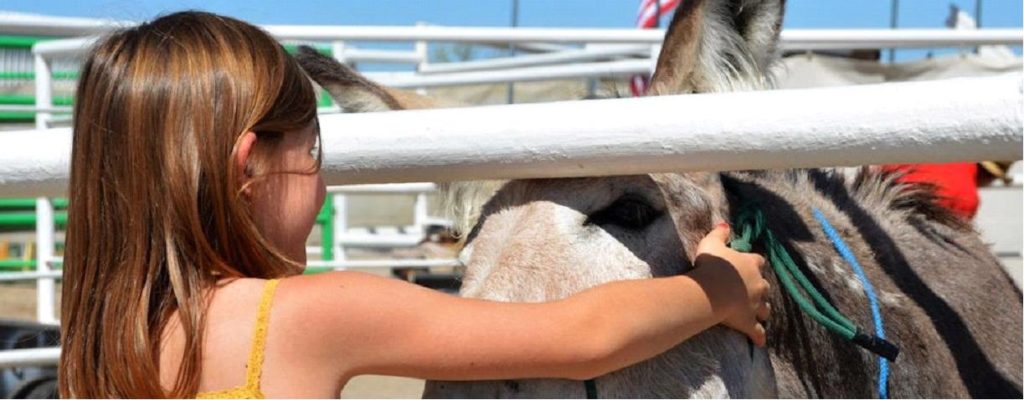
Bureau of Land Management offers Burro Adoption and Sale Programs
These are primarily donkeys have been running free on public lands and are not trained although there are some auctions that offer donkeys that have been halter broken and trained in other manners, perhaps to pull a cart. The government also offers a financial incentive program to adapt some of the untrained burros through the Adoption Incentive Program. (more information at https://www.blm.gov/programs/wild-horse-and-burro/adoptions-and-sales/adoption-incentive-program) This incentive program is described on the website and applications for buying the burros are available.
Only pairs or small numbers of guard donkeys should be pastured with the cattle. That way the donkeys will seek out the companionship of the cattle and not form herds with only other donkeys. Unless you have a donkey that you are very comfortable with leaving with small calves it is probably a good idea to remove it from the calving pasture to prevent an accident or possibly disturbing a cow during calving.
Be sure your fences are in good repair so the smaller donkeys will not escape or become tangled in broken wire.
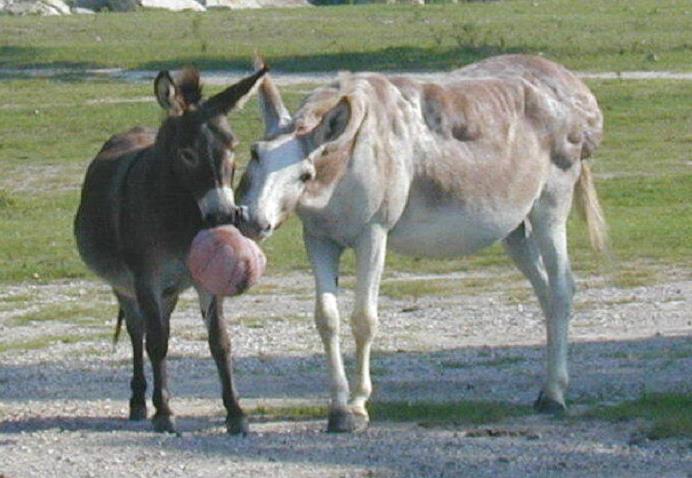
Donkey’s Hooves Should be Properly Cared For
Care of Donkeys
Guard donkeys must be cared for properly, especially their hoof care. They have relatively small feet and are typically very sure footed, but their hooves can grow too long if not kept trimmed. Be sure to keep them away from feed grains and additives containing anabolic agents such as Deccox, Rumensin or Bovatec. These products are toxic to donkeys. Also, keep them away from high energy feeds for calves because they could cause laminitis in donkeys.
Donkeys are susceptible to the same diseases and parasites as horses and will need regular worming and vaccinations. They should be provided with plenty of fresh water since they have larger water requirements than other livestock. Also be sure they have minerals in loose form and salt.
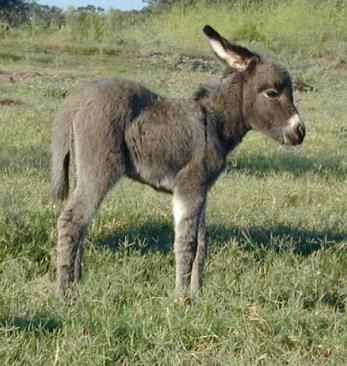
In summation, donkeys can make excellent guard animals and are also fun to have around.
